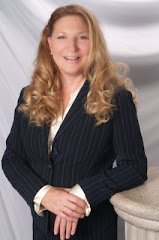
Hello Friends!
It is tax time again, and as always, you must seek the advice from you local tax professional, tax attorney or accountant to find out what is best for you and your portfolio. Seek professional advice that pertains to your particular circumstances. The tax laws change, it is best to be certain when you have a question.
I spoke with my tax professional about this year taxes, and we discussed the capital gain tax. I thought I would do some research and provide some general information in regard to capital gain tax; Let's get started.
If you sold your main home and made a profit, you may be able to exclude that profit from your taxable income. Here's how it works.
$250,000 Exclusion on the Sale of a Main Home Individuals can exclude up to $250,000 in profit from the sale of a main home (or $500,000 for a married couple) as long as you have owned the home and lived in the home for a minimum of two years. Those two years do not need to be consecutive. In the 5 years prior to the sale of the house, you need to have lived in the house for at least 24 months in that 5-year period. In other words, the home must have been your principal residence.
You can use this 2-out-of-5 year rule to exclude your profits each time you sell or exchange your main home. Generally, you can claim the exclusion only once every two years. Some exceptions do apply.
Exceptions to the 2 out of 5 Year Rule If you lived in your home less than 24 months, you may be able to exclude a portion of the gain. Exceptions are allowed if you sold your house because the location of your job changed, because of health concerns, or for some other unforeseen circumstance.
Change in the Location of Your Job
If you lived in your house for less than two years, you can exclude a part of your gain on the sale of your house if your work location has changed. This exception would apply if you started a new job, or if you are moved to a new location with your employer.
Health Concerns
If you are selling your house for medical or health reasons, be ready to document those reasons with a letter from your physician. Such a letter does not need to be filed with your tax return. Instead, keep the documentation in your personal records just in case the IRS wants further information.
Unforeseen Circumstances
If you are selling your house because of unforeseen circumstances, be ready to document what those reasons are. I RS Publication 523 defines an unforeseen circumstance as "the occurrence of an event that you could not reasonably have anticipated before buying and occupying your main home." The IRS has given specific examples of unforeseen circumstances:
natural disasters, acts of war, acts of terrorism,
change in employment or unemployment that left you unable to meet basic living expenses,
death, divorce, separation, or multiple births from the same pregnancy.
Partial Exclusion
You can exclude a portion of your gain if you are selling your home and lived there less than 2 years and you meet one of the three exceptions. You calculate your partial exclusion based on the amount of time you actually lived in your home. Count the number of months you actually lived in your home. Then divide that number by 24. Then multiply this ratio by $250,000 (if unmarried) or by $500,000 (if married). The result is the amount of gain you can exclude from your taxable income.
For example: you lived in your home for 12 months, and then sold the home because your employer asked you to relocate to a different office. You are an unmarried person. You calculate your partial exclusion: 12 months divided by 24 month (for a ratio of .50) times your maximum exclusion of $250,000. The result: you can exclude up to $125,000 in gain. If your gain is more than $125,000, you include only the amount over $125,000 as taxable income. If your gain is less than $125,000, then your gain can be excluded from your taxable income.
Loss on the Sale of a home
You cannot deduct a loss from the sale of your main home.
Reporting the Gain on the Sale of Your Home Gain on the sale of your home is reported on Schedule D as a capital gain. If you owned your home for one year or less, the gain is reported as a short-term capital gain. If your owned your home for more than one year, the gain is reported as a long-term capital gain.
I have a great tax man I work with, he is Don Bond with Bond Bookkeeping and Tax.
Please contact me for his direct line and address.
Kim Duclos Coldwell Banker Wardley
(888) 949-2890 (702) 521-3939


